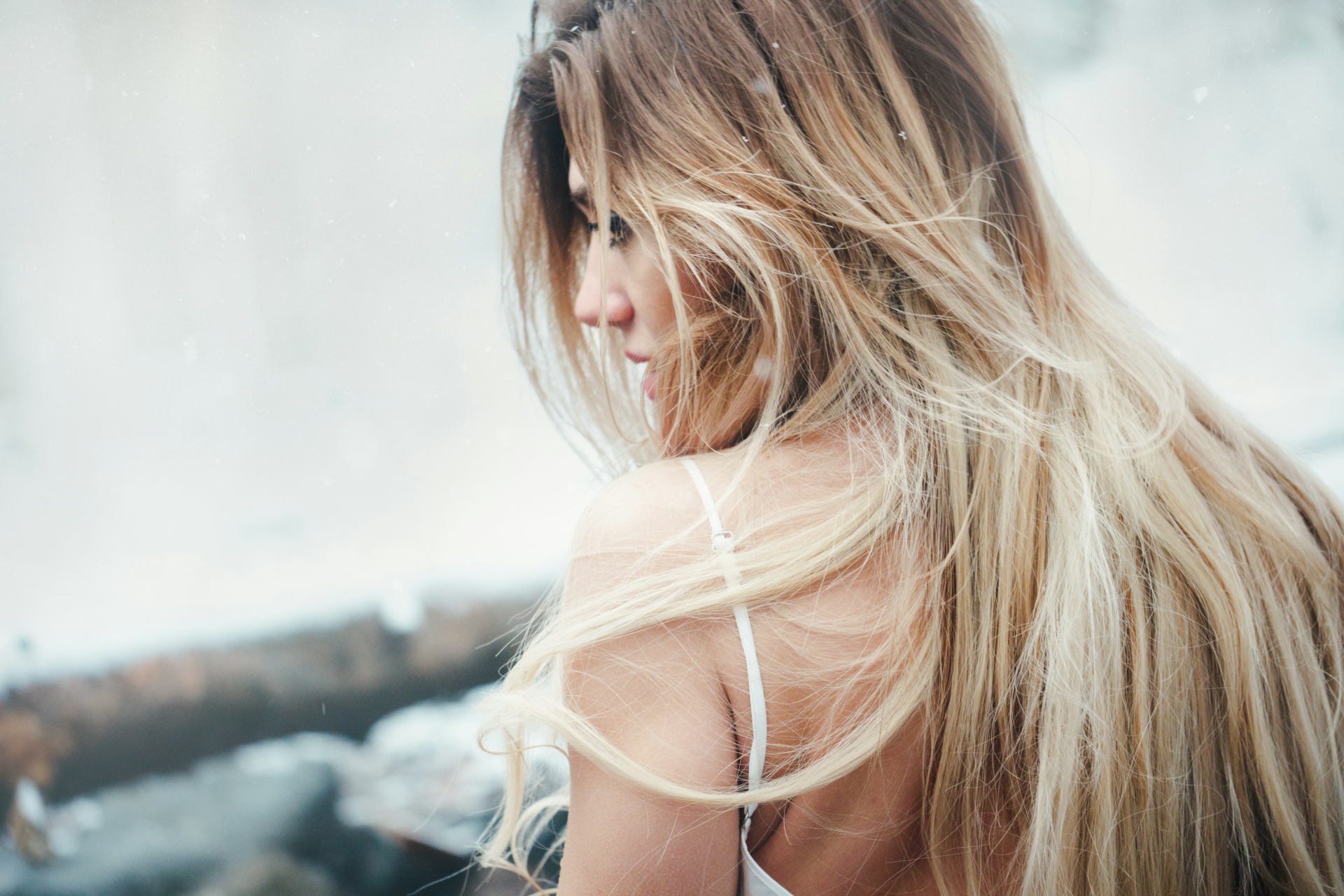
Colouring Tips for Lola EXTENSIONS
This small guide is divided into two sections: lightening or darkening real hair extensions. The selection of recommended dyes and colouring methods differs fundamentally depending on whether you wish to lighten or darken your extensions.
Lightening Real Hair Extensions
Tips for Lightening Natural Real Hair Extensions:
With standard dyes available at high street shops, natural real hair extensions can generally be lightened by up to two shades. For our untreated wefts, loose braids, clip-ins, and wigs, this is generally safe. However, for more wavy or curly hair, we recommend testing on a small hair piece first. This is because curly hair tends to be finer, making it harder to absorb colour, and overly long colouring processes can cause wavy real hair extensions to tangle. Upon request, we are happy to share tried-and-tested dyes available at most high street shops.
Lightening Dyed Real Hair Extensions - Is It Possible?
We generally do not recommend lightening our dyed real hair extensions.
The reason:
We always provide you with top-quality Remy real hair. However, as Indian real hair is naturally dark, bleaching requires a complex and lengthy process. Thanks to our manufacturer’s long-tested colouring process, the natural cuticle layer is preserved but opened to allow the colour to penetrate. As a result, dyed real hair extensions are usually somewhat drier than untreated ones and thus require more care. We deliberately avoid using a silicone layer to mask this artificially.
If dyed real hair extensions are lightened further, the developer used in the dyeing process opens the cuticle layer even more. The result is further dryness and stress on the hair. Additionally, existing dyes in the hair may interfere with the absorption of new colour.
For slight colour adjustments, ammonia-free or peroxide-free lightening dyes may be considered.
However, expectations for the lightening effect should be modest. "Oil boosters" can be advantageous as they help prevent hair from drying out after colouring.
Another gentler alternative to traditional dyes is the use of shampoos or conditioners with a colour effect.
For instance, golden blonde hair can be slightly ashed using silver shampoo/conditioner, which lasts for several washes.
Darkening Real Hair Extensions
Darkening hair to deeper tones is always possible. However, we recommend using gentle dyes and not exceeding two to three shades darker. For blonde-dyed wefts, no oxidants (developers) that open the cuticle layer should be used. The same applies to products containing ammonia or peroxide. Caution: Avoid using semi-permanent dyes on blonde-dyed extensions, as many contain acids that damage the hair. As with lightening, previously dyed blonde extensions may not achieve the desired shade due to existing colour in the hair.
Our tip:
If you wish to darken our blonde-dyed extensions, avoid using professional dyes whenever possible. These usually contain ammonia, which is unnecessary for darkening and opens the cuticle layer, leading to long-term dryness. Professional dyes (hairdresser products) are typically unsuitable for extensions, as they are designed for hair that can still be nourished by the scalp. Nowadays, the market offers products that use oil-based formulations, providing a gentler approach that prolongs the lifespan of your extensions.
How Do I Darken My Real Hair Extensions?
Multiple colouring sessions may be necessary to achieve an even and vibrant result. It is important that the hair dries completely between sessions to allow the extensions to absorb the colour again. For light-coloured wefts that need to be darkened significantly, we recommend spreading the weft out fully and starting at the top near the seam. Apply the colour to one side, fold the weft in half, and dye the other side of the same half. Repeat this process until the weft is about five to three centimetres wide. This method helps distribute the colour evenly across the extensions and facilitates easier rinsing. If the colour dries on individual thin strands of an open weft, these strands may later break. Folding the weft keeps the strands together, preventing drying during the colouring process.
How Do I Lighten My Real Hair Extensions?
There are various methods for lightening extensions. Here are a few suggestions:
The Simple Method:
If you want to lighten the extensions slightly from a specific starting point and the original colour matches your natural hair, you can leave the wefts folded for the colouring process. This makes colour application easier. However, avoid applying the dye all the way to the top, as it can be difficult to rinse completely from the seam area. Thorough rinsing and drying are essential to prevent oxidation. This approach is only suitable for minimal colour adjustments.
The More Advanced Method:
For significant lightening, we recommend opening the real hair weft as described in “How Do I Darken My Real Hair Extensions?”.

Wefts in different colours worked in on top of each other
After Lightening or Darkening
- During the colouring or drying process, real hair extensions may temporarily tangle or stick together slightly. This is normal and can happen with natural hair too. To gently resolve tangling or sticking, follow these steps:
- After rinsing out the colour, apply a repair mask to the wet hair to facilitate detangling.
- Using a wide-toothed comb, gently comb through the extensions, starting from the ends. This helps untangle knots or sticky areas from the bottom up. For stubborn knots, work under running water. Once the hair is manageable, switch to a standard comb. Always hold the extensions securely at the top to prevent strands from being pulled out.
Please note that we cannot provide a guarantee for self-coloured or dyed extensions.